May 14
We arise at the ungodly hour of 4AM for our transfer to the Cape Town airport and our 2-hour flight to Joburg. Zoe is not exactly what one would call a morning person, so she is bleary-eyed. The hotel has packed us box breakfasts, which we eat on the flight. Freedom meets us at the Joburg airport and assists in pointing us towards our approximately 2-hour flight to Malawi, where we will be met and driven on a two and a half-hour scenic trip to the Majete Wildlife Reserve.
The drive is indeed scenic, but it also passes through wonderful African roadside stores and markets, not all that different from what we’ve seen on our many trips to Ghana. As a photographer, I find it very frustrating not to be able to stop, walk around and photograph these scenes. Because of time constraints, I’m left to shoot from the car, often while we are in motion. Here’s some of the rather mediocre results, including a bunch of charcoal, made from trees chopped down illegally by natives–a big conservation problem.
Located in the south of Malawi close to the city of Blantyre, Majete is an area of 70,000 hectares, part of Africa’s Great Rift Valley. The reserve is made up of mature miombo woodlands and granite topped hills that contrast with picturesque river valleys and lush forest. It is one of the big success stories in African conservation, as after decades of poaching, hard work has turned the reserve back into a sustainable development as well as the only official Big 5 Game Park in Malawi. Previously-endangered species now live and breed there.
We will be staying for three nights at Mkulumadzi, an idyllic location at the confluence of two rivers shaded by giant leadwood trees. It is combines isolation with first-class facilities. And, if you are going to be isolated, I have always favored first-class isolation. Indeed, first-class understates this place.
As we walk haltingly across the rickety suspension bridge to the lodge, Zoe tells Carol that she’d really like to live to become thirteen (tomorrow). Mkulumadzi has eight chalets, spacious living quarters and a private viewing deck. The lodge offers a pool, dining under the stars, river cruises, game drives, and walking safaris. Our chalet is spectacularly lovely. And Zoe loves having a private room with deck, and her own bathroom. Tough, I know, but, hey, somebody’s gotta do it. The one thing this place does lack, though is wifi, so it’s going to screw up my ability to post daily.
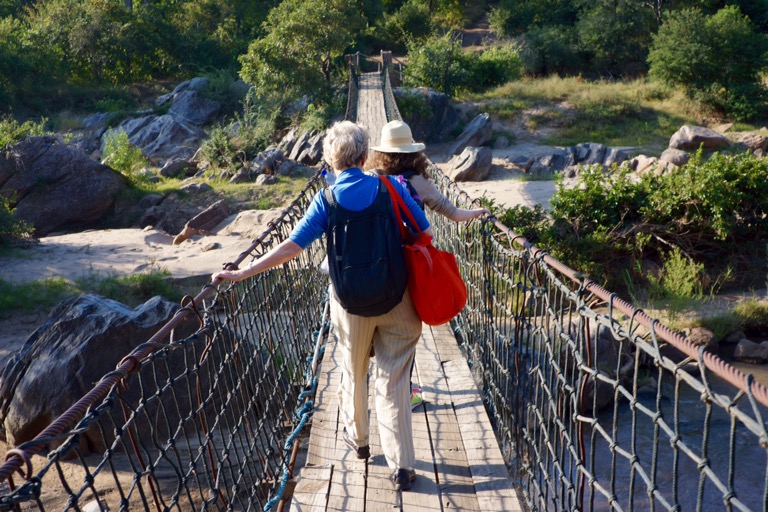
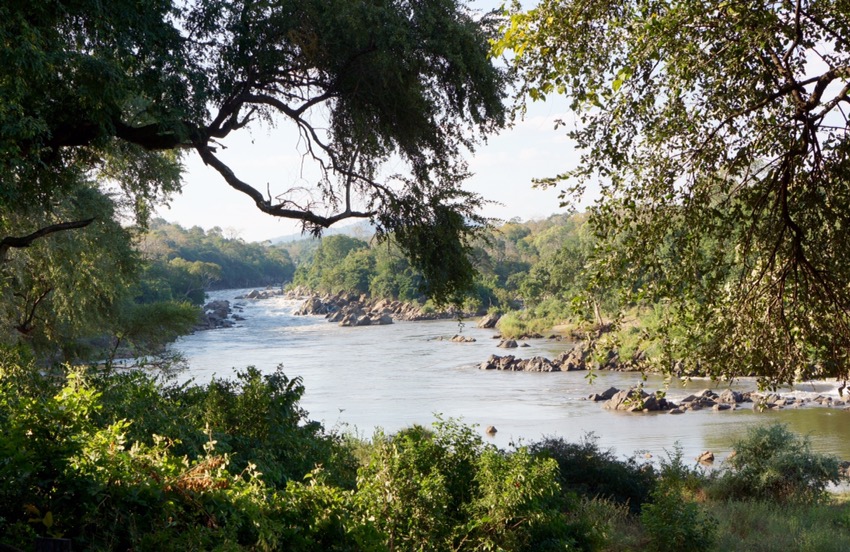
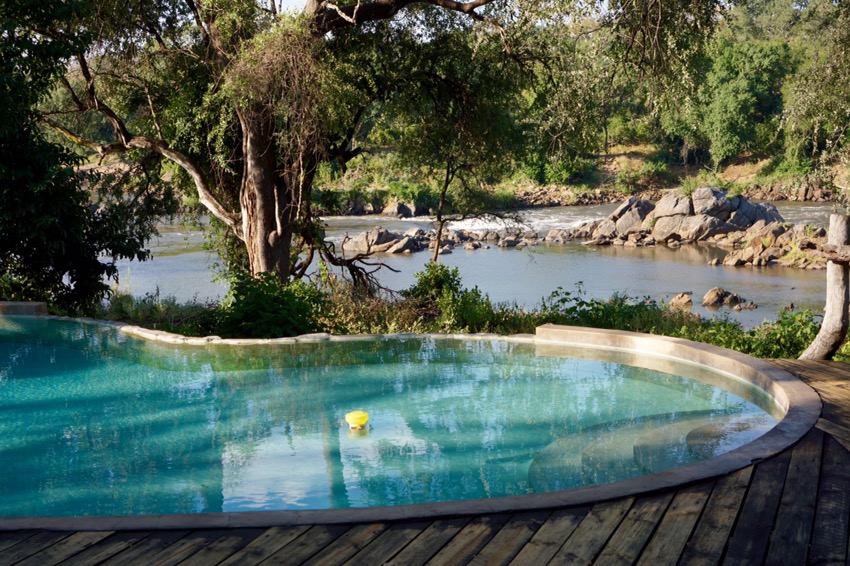
As Majete is virtually undiscovered by tourists, our itinerary boasts that “Majete is a true wilderness where every trip into the bush with experienced guides will feel like an adventure.” Based on our afternoon/evening drive, that’s a bit of hyperbole. We did not have great luck in finding unusual sights, but that happens, the gin and tonic sundowner and macadamia nuts were good and we’ll probably fare better in the game viewing tomorrow.
We have a barbeque dinner outside under the stars, together with the one other guest in the lodge, Michael from Sweden, who is here to monitor the progress of some water projects done by the not for profit group that he works for. We’re able to compare our Ghana water experience with Michael and talk with him about the problems in this extremely poor country. I think it’s good that Zoe is being exposed to these kinds of issues and discussions.
We’re exhausted from our 4AM start and so retire early. But you may not be as tired, so here’s a bit about Malawi. We’ll be giving a quiz when we return.
The Republic of Malawi may be one of Africa’s smallest countries but when it comes to exploration and adventure, it has tremendous amounts to offer; from grasslands and forests, mountaintops, unspoilt wildlife parks to Africa’s third largest and most beautiful lake.
Malawi, a landlocked country in southeast Africa, was formerly known as Nyasaland. It is bordered by Zambia to the northwest, Tanzania to the northeast, and Mozambique on the east, south and west. The country is separated from Tanzania and Mozambique by Lake Malawi. Malawi is over 118,000 km2 (45,560 sq mi) with an estimated population of 16,777,547 (July 2013). Its capital is Lilongwe, which is also Malawi’s largest city; the second largest is Blantyre and the third is Mzuzu. Malawi is among the smallest countries in Africa. The name Malawi comes from the Maravi, an old name of the Nyanja people that inhabit the area. The country is also nicknamed “The Warm Heart of Africa”.
Situated on the Great Rift Valley, Malawi is dominated by Lake Malawi, a magnificent body of water, 365 miles long and 52 miles wide (hence sometimes referred to as the calendar lake), it occupies about a third of Malawi’s area. It’s teaming with life including over 400 species of cichlid fish, a lot of which are endemic to it. Most of Lake Malawi’s astounding underwater diversity is protected within the Lake Malawi National Park which is a World Heritage site and also one of the first in the world set aside for the protection of freshwater fish.
The area now known as Malawi was settled by migrating Bantu groups around the 10th century. Centuries later in 1891 the area was colonized by the British. In 1953 Malawi, then known as Nyasaland, a protectorate of the United Kingdom, became a protectorate within the semi-independent Federation of Rhodesia and Nyasaland. The Federation was dissolved in 1963. In 1964 the protectorate over Nyasaland was ended and Nyasaland became an independent country under Queen Elizabeth II with the new name Malawi. Two years later it became a republic. Upon gaining independence it became a one-party state under the presidency of Hastings Banda, who remained president until 1994, when he lost an election. Peter Mutharika is the current president.
Malawi has a democratic, multi-party government, and a small military force that includes an army, a navy and an air wing. Malawi’s foreign policy is pro-Western and includes positive diplomatic relations with most countries and participation in several international organizations, including the United Nations, the Commonwealth of Nations and the Southern African Development Community.
Malawi is among the world’s least-developed countries. The economy is heavily based in agriculture, with a largely rural population. The Malawian government depends heavily on outside aid to meet development needs, although this need (and the aid offered) has decreased since 2000. The Malawian government faces challenges in building and expanding the economy, improving education, health care, environmental protection, and becoming financially independent. Since 2005, Malawi has developed several programs that focus on these issues, and the country’s outlook appears to be improving, with a rise in the economy, education and healthcare seen in 2007 and 2008.
Malawi has a low life expectancy and high infant mortality. There is a high prevalence of HIV/AIDS, which is a drain on the labor force and government expenditures. There is a diverse population of native peoples, Asians and Europeans, with several languages spoken and an array of religious beliefs. Although there was periodic regional conflict fueled in part by ethnic divisions in the past, by 2008 it had diminished considerably and the concept of a Malawian nationality had re-emerged.

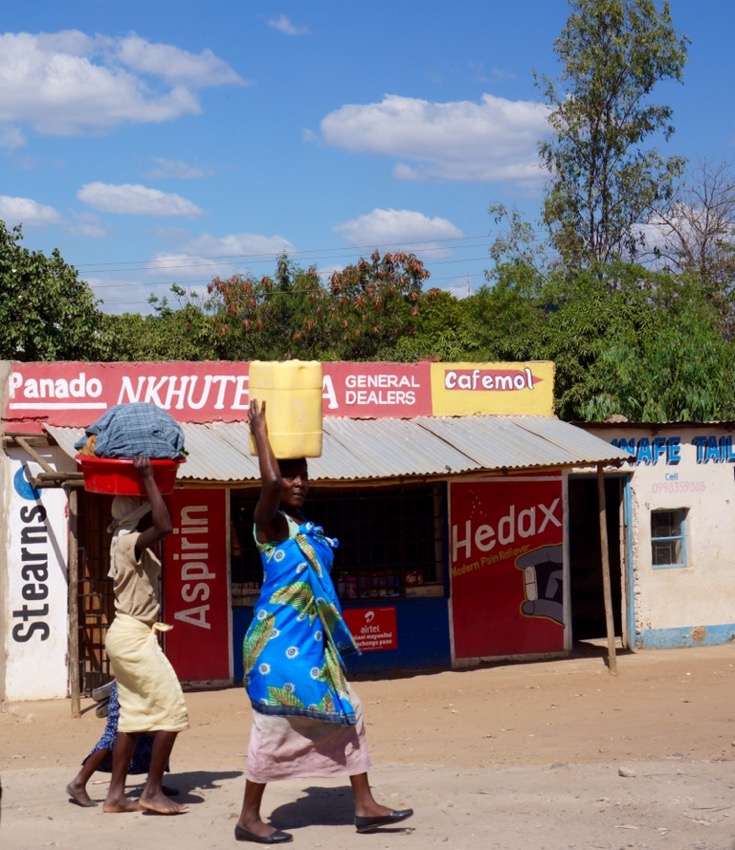
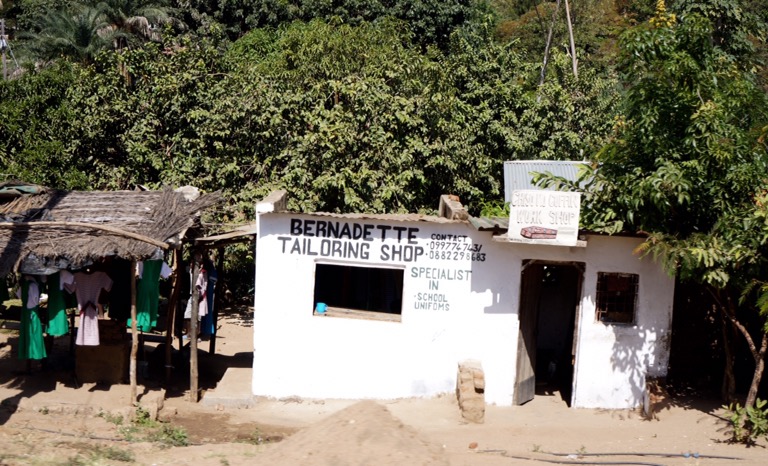

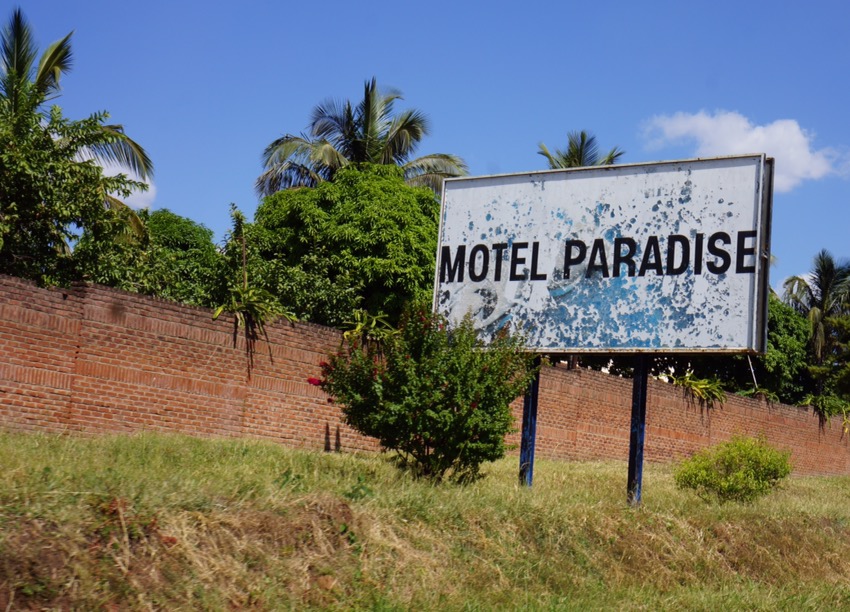
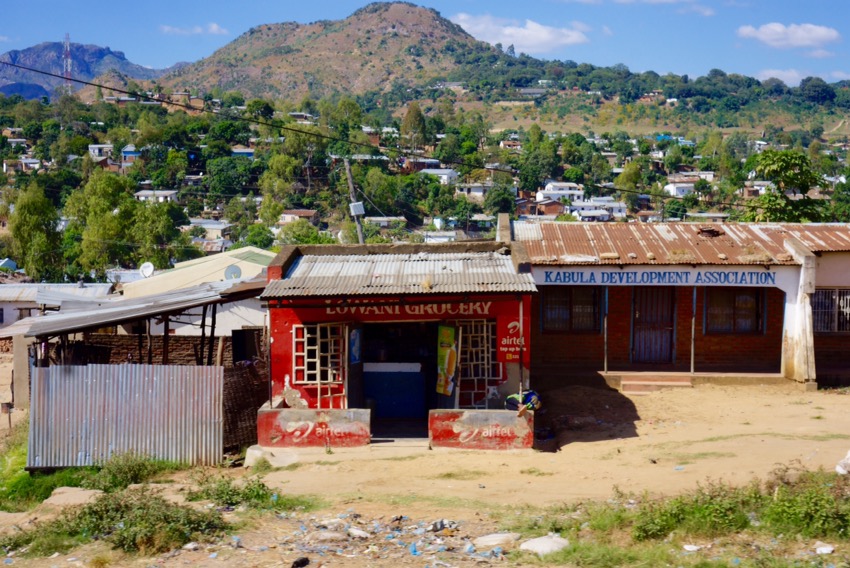
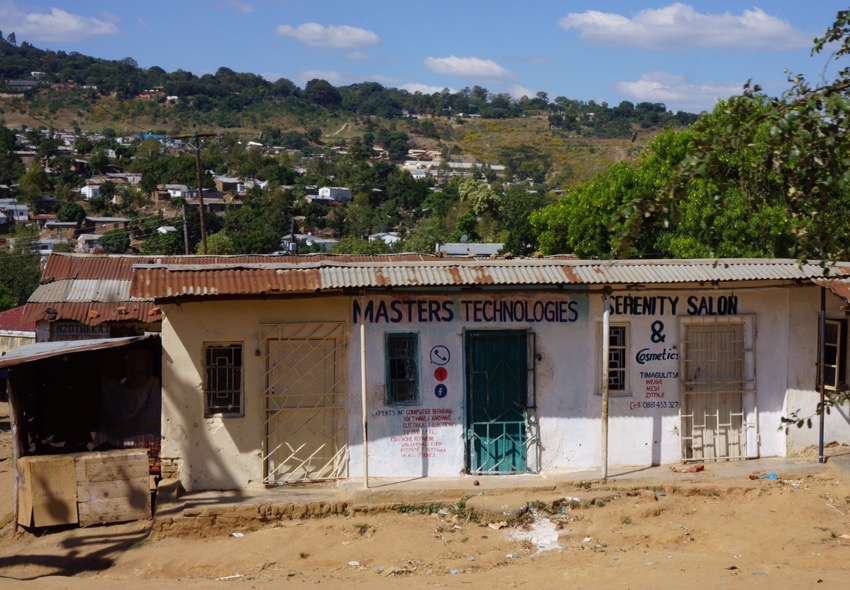

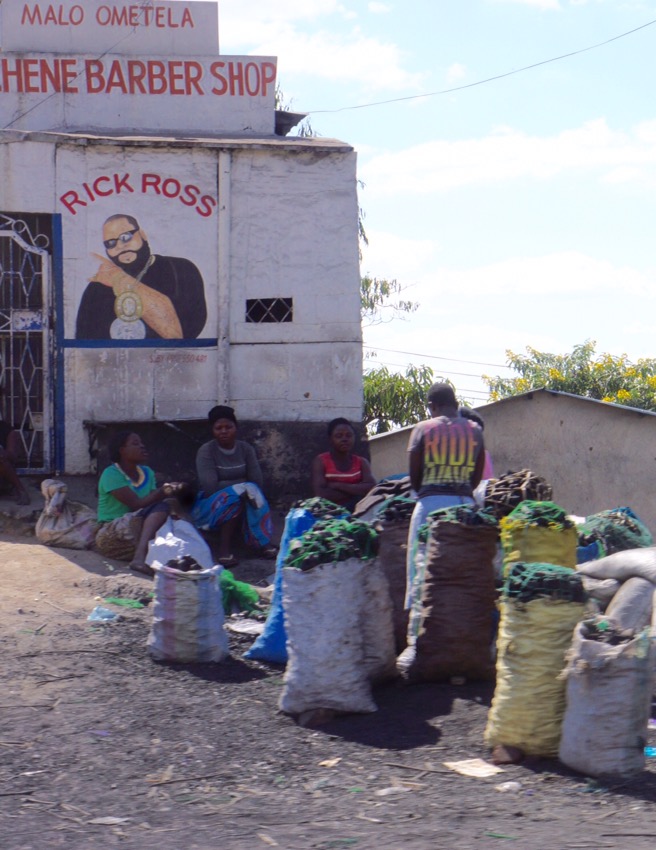

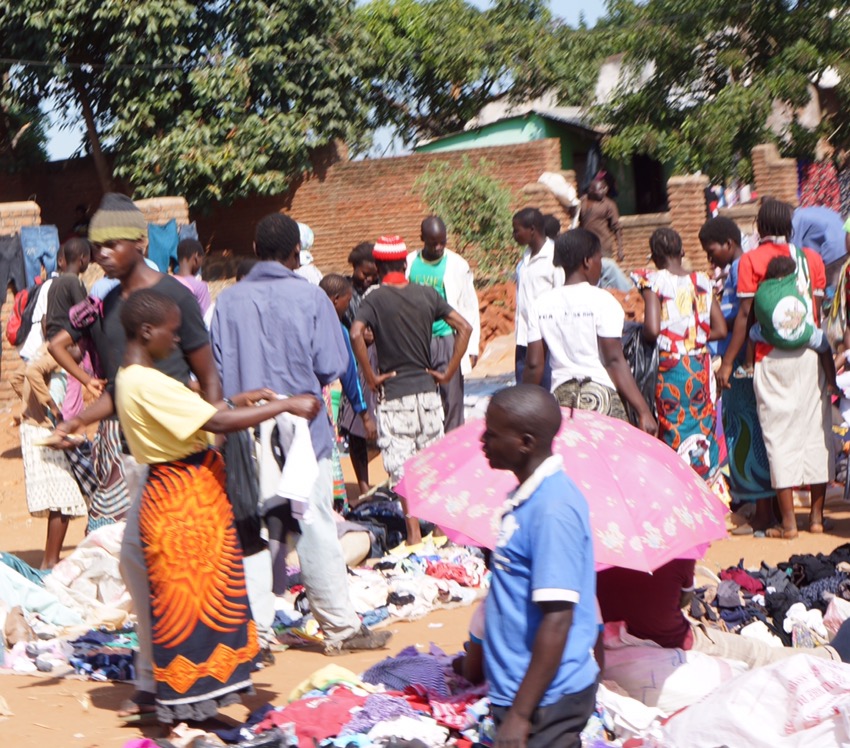
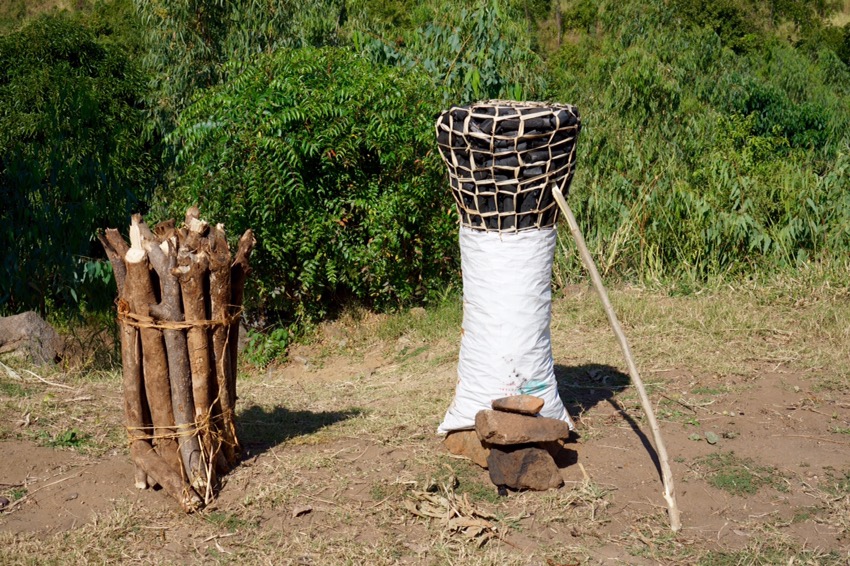
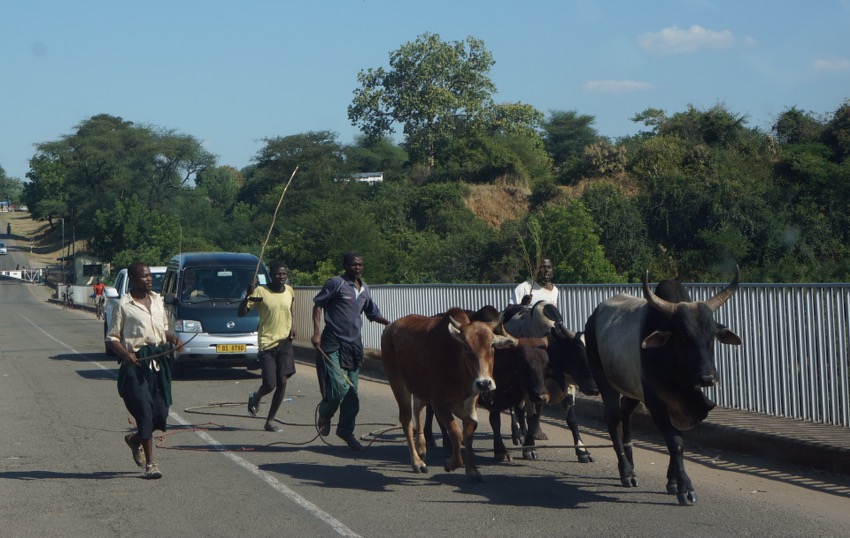

Malawi sounds great! I would not have liked that bridge, though!
Loved the photos. Great descriptions, too. Enjoy!